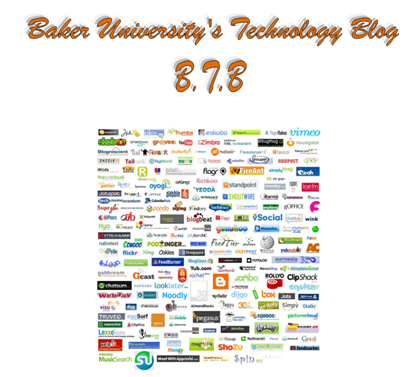- Utilizing forums (and when I use the word forums I also mean blogs, wikis, and chats) for sharing ideas is an ideal way to create class discussions that can be retained for future reference. If setup correctly, it can encourage students to engage in the material for that week and explore their thoughts through writing (maybe even improving their writing along the way...maybe). However, what I do think is underutilized is the requirement of peer responses. When meeting face-to-face there is an accountability of when you speak up in class and share your ideas your peers will hold you accountable for what you have to say. I've heard the concept that anonymity online allows students to engage more open than they would if face-to-face, which may be true; however, asking students to read and respond to their peers is a valid way to entice conversation and the sharing of ideas. Don't allow students to read the initial forum question or assignment, do their reading and post, remaining isolated to fulfill the assignment. Compel them to engage with other students. This requires them to consider their audience and calculate what they need to write so their thought can be shared with others.
- Building off of point #1, require critical feedback. In one of my assignment descriptions I require students to respond to a set number of peers, but in their initial peer response I ask students to offer a critique. I approach in I way that I ask them to reflect back on the post once they've read it and ask themselves what question do you have, what do you wish would have been clarified more or what could have been explained better? Responding with a favorable view is encouraged and allowed, but they must include a critical point. This causes the person that made the post to respond with clarification and in turn causes them to consider their audience and how they craft their views. This also raises the level of discourse and illustrates how to remain civil and respectful while disagreeing or critiquing, a useful skill for later in life.
- Directly tie responses with course materials. Too often I see instructors write a description for an assignment that simply asks to "give me your thoughts on chapter 13." Directly target concepts and course materials that relate back to the course outcomes and objectives; and most importantly, give clear directions and guidance on what your expectations are. Something as vague and as general as thoughts on a chapter do little to entice critical thought, your merely asking for a summary or overview, which can show they retained something, but did they think about it? This requires knowing the content and threading together a sophisticated question that draws on all aspects of a chapter, but you are the instructor.
Friday, January 14, 2011
Increasing Online Activity
I have been listening (and reading) of a theme that is troublesome with online education. Too often online education is being packaged as "convenient" for students that want to further their education. I don't know about you, but the term convenient carries an implication of easier when I hear it...but is that how online education should be presented? The notion of online education as being easier, I feel, is a misnomer. Yes, there are some caveats (like staying in your pajamas to attend an online meeting, but I went to class in undergrad in my pajamas, so maybe that's not that different) of an asynchronous online environment that allows for flexibility in how you schedule your day, but does that make it easier? Time management isn't easy, reading and forming critical thought isn't easy, writing elaborate papers isn't easy, retaining information that is often self-directed for a comprehensive exam isn't easy, etc... But what impact does this have on a student and are there ways to get around this initial premise of convenient to engage them in distant education? Let me offer some suggestions, which are based upon my current work and initiatives here at Baker, to increase interaction with students in an online setting:
Subscribe to:
Comments (Atom)
